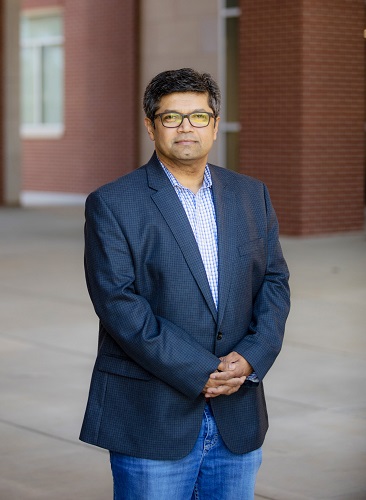WKU News
Ajay Srivastava Secures Grant for Confocal Microscope
- Aaron Mudd
- Wednesday, July 24th, 2019

For years, biology professor Ajay Srivastava has toiled to secure grant funding for a new,
high-tech microscope that would give his students at Western Kentucky University a new
window into studying cancer at the molecular level.
Last week, he had a breakthrough when it was announced that the National Science
Foundation awarded WKU a $377,259 grant to purchase a laser scanning confocal
microscope, according to the office of U.S. Rep. Brett Guthrie, R-Bowling Green.
Srivastava said the microscope will be available to a mix of undergraduate, graduate and
Gatton Academy of Mathematics and Science in Kentucky students, along with about a
dozen faculty members, during the fall semester.
“They’ll be exposed to this really state-of-the-art technique,” Srivastava said, referring to
students involved in the research project he’s leading.
Up to this point, Srivastava said, his students haven’t had the opportunity to easily study
under a microscope the three-dimensional structures cancer cells exist within. The new
microscope scans tissues into thin optical sections, “then if you want you can assemble
this into a 3-D structure,” Srivastava said, adding it works roughly like a CT scan.
That’s helpful for understanding how cancer metastasizes throughout the body on a
molecular and genetic level, which is the research project’s goal, Srivastava said. The
research could produce new insights as to how cancer hijacks the body’s tissues, he said.
Previously, students had to travel to Vanderbilt University to use a similar microscope.
But this fall, three to four undergraduate students, two graduate students and five Gatton
Academy students will benefit from a piece of sophisticated equipment closer to home,
Srivastava said,
“Wherever they go they’re going to be extremely competitive,” Srivastava said, referring to
students applying to graduate school. He added the new equipment could also draw
future students and faculty to WKU.
Normally such grants go to major research universities like the University of Louisville or
the University of Kentucky, Srivastava said. But this new tool will give students and their
research a new edge, he said.
“The work that students are doing is second to none,” he said.
Some of the links on this page may require additional software to view.

